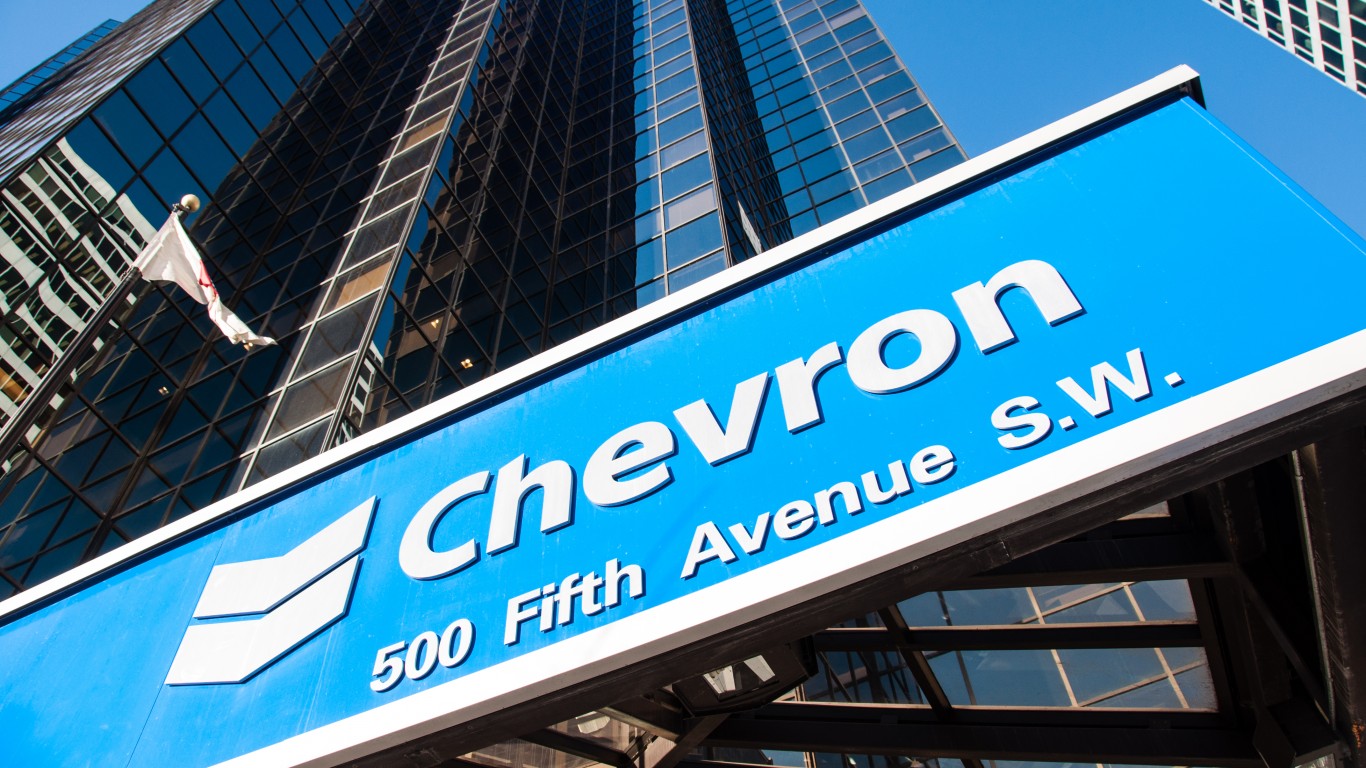
The three major U.S. equity indexes closed higher again Monday. The Dow Jones industrials ended the day up 0.13%, the S&P 500 closed 0.09% higher and the Nasdaq saw a gain of 0.25%. Eight of 11 sectors closed higher, with communications services (1.83%) and energy (1.73%) posting the biggest gains. Utilities (−1.94%) had Monday’s poorest showing.
[in-text-ad]
This week’s economic calendar includes the monthly report on the consumer price index (CPI). Economists are expecting the Thursday morning release to show that the index increased month over month in October by 0.7%. Core CPI (which excludes food and energy) is expected to tick down from 0.6% to 0.5%. The weekly report on new claims for unemployment insurance will be released Thursday as well. New claims are expected to rise from last week’s 217,000 to 220,000.
The three major indexes traded higher about 30 minutes after Tuesday’s opening bell.
After U.S. markets closed Monday, Lyft reported better-than-expected earnings per share (EPS) but missed the consensus revenue estimate. Ridership numbers for the quarter were lower than expected and remained below pre-pandemic levels. Shares traded down by around 18.5% Tuesday morning.
Activision Blizzard beat consensus estimates on both the top and bottom lines. The pending $70 billion acquisition by Microsoft makes this kind of a so-what moment, though. Shares still traded about $23 below the buyout price of $95. The stock traded up by 1.6% Tuesday morning.
Before markets opened Tuesday morning, Constellation Energy reported a much worse-than-expected loss per share, while at the same time easily beating the consensus revenue estimate. Operating and maintenance costs soared, however, sending EBITDA down by more than $350 million. Constellation also lowered its fourth-quarter adjusted EBITDA guidance. Shares traded down about 2.1% Tuesday morning.
GlobalFoundries beat consensus estimates on the top and bottom lines. Fourth-quarter EPS guidance was above estimates, while revenue guidance was in line with expectations. Shares traded up about 4.7%.
After markets close Tuesday, Affirm, AMC Entertainment and Disney will report quarterly results, as will Lucid, Occidental Petroleum and Plug Power. Look for Canopy Growth, D.R. Horton, and Hecla Mining to share their results before U.S. markets open on Wednesday. Later on Wednesday, Kinross Gold, Unity Software and Wynn Resorts take their turns in the earnings spotlight.
Here is a preview of three companies set to report quarterly results first thing Thursday morning.
AstraZeneca
Drugmaker AstraZeneca PLC (NYSE: AZN) has seen a share price decline of about 3% over the past 12 months. For the year to date, the shares are up nearly 5%. Last month, AstraZeneca’s recently acquired Alexion itself acquired struggling biotech LogicBio Therapeutics for $2.07 a share (around $68 million). That was a 666% premium over LogicBio’s most recent closing price. The acquisition was expected to close by the middle of November, and it has lifted the share price by about 11% since it was announced in early October.
[in-text-ad]
Analysts are mostly bullish on the stock, with 21 of 26 brokerages having a Buy or Strong Buy rating and four more rating the shares at Hold. At a recent price of around $61.10 a share, the upside potential based on a median price target of $138.97 is about 127%. At the high price target of $199.37, the upside potential is 226%.
For the company’s fiscal third quarter, analysts are forecasting revenue of $10.86 billion, which would be an increase of 0.8% sequentially and an increase of 10% year over year. Adjusted EPS are tabbed to come in at $1.52, down by about 11.7% sequentially but 40.7% higher year over year. For the full 2022 fiscal year, the current revenue estimate is $44.28 billion, up 18.4%, and the EPS estimate is $6.64, up about 25.5%.
AstraZeneca stock trades at 18.5 times expected 2022 EPS, 16.2 times estimated 2023 earnings of $7.54 and 13.7 times estimated 2024 earnings of $8.96 per share. The stock’s 52-week trading range is $52.65 to $71.70. AstraZeneca pays an annual dividend of $1.45 (yield of 2.42%). Total shareholder return for the past year was negative 0.8%.
Nio
China-based electric vehicle maker Nio Inc. (NYSE: NIO) has lost about 75% from its share price over the past 12 months. Shares posted a new 52-week low about two weeks ago, dropping nearly 39% in October alone. Investors were wary of the impact of closing two assembly plants due to China’s zero-covid policy. October production results turned out much better than many expected, and that put a charge under the stock, which trades something like a meme stock to begin with.
There are 28 analyst ratings on Nio’s stock, and 26 are Buy or Strong Buy. At a share price of around $11.00, the upside potential based on a median price target of $26.99 is around 145%. At the high target of $64.59, the upside potential is approaching 500%.
For the third quarter of fiscal 2022, the consensus estimates call for revenue of $1.79 billion, up about 14.5% sequentially and by 17.7% year over year. Nio is expected to post an adjusted loss per share of $0.16, flat sequentially, and better than the year-ago loss of $0.28 per share. For the full year, the company is expected to report a per-share loss of $0.60, better than the $1.00 loss in 2021, on sales of $7.85 billion, up about 45.6%.
[in-text-ad]
Analysts estimate that Nio will not produce a profit in 2023. Neither the stock’s enterprise value nor its EPS estimates for the next three years is available. The stock’s 52-week range is $8.38 to $44.27. The company does not pay a dividend and the total shareholder return for the past year is negative 75.9%.
WeWork
Office space rental firm WeWork Inc. (NYSE: WE) has posted a share price decline of about 73% over the past 12 months. The 52-week low was registered last month, and the stock has added more than 30% since then.
WeWork has been a publicly traded company for just over a year, and its future depends to a large extent on how other companies plan to operate. There will be far less working from home than in the past two years, but will employers seek to rent space from WeWork or to haggle with their current landlords over rent payments? A so-called hybrid outcome, where employees work from home for some days and in the office for others, may be WeWork’s best hope.
Just six analysts cover the stock, and all but one have a Buy or Strong Buy rating. The sixth has a Hold rating on the stock. At a share price of around $2.60, the upside potential based on a median price target of $7.75 is nearly 200%. At the high target of $11.00, the implied gain is 323%.
Fiscal third-quarter revenue is forecast at $965.04 million, an increase of 6.1%. Analysts expect an adjusted loss per share of $0.44, down sequentially from a loss per share of $0.74. For the full 2022 fiscal year, the current revenue estimate is $3.36 billion, and the estimated per-share loss is $2.23.
WeWork is not expected to make a profit in 2022, 2023 or 2024. The stock trades at an enterprise value to sales multiple of 6.6 times for a 2022 valuation of $3.36 billion, as well as 5.3 times estimated 2023 valuation of $4.12 billion and 4.7 times estimated 2024 valuation of $4.69 billion. The stock’s 52-week range is $1.94 to $10.13. WeWork does not pay a dividend. Total shareholder return for the past year was negative 73.3%.
Travel Cards Are Getting Too Good To Ignore (sponsored)
Credit card companies are pulling out all the stops, with the issuers are offering insane travel rewards and perks.
We’re talking huge sign-up bonuses, points on every purchase, and benefits like lounge access, travel credits, and free hotel nights. For travelers, these rewards can add up to thousands of dollars in flights, upgrades, and luxury experiences every year.
It’s like getting paid to travel — and it’s available to qualified borrowers who know where to look.
We’ve rounded up some of the best travel credit cards on the market. Click here to see the list. Don’t miss these offers — they won’t be this good forever.
Thank you for reading! Have some feedback for us?
Contact the 24/7 Wall St. editorial team.

 24/7 Wall St.
24/7 Wall St.



